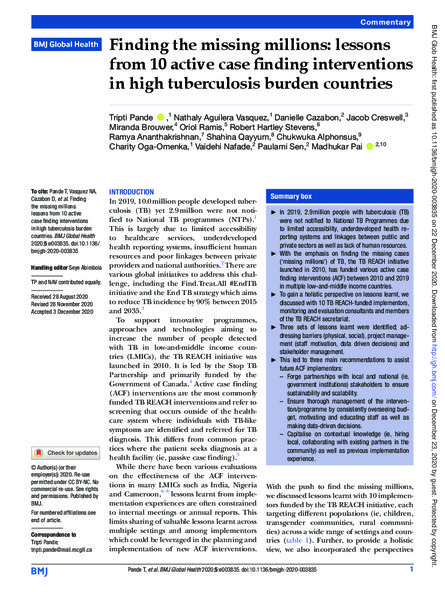
Summary
In 2019, 2.9 million people with tuberculosis (TB) were not notified to National TB Programmes due to limited accessibility, underdeveloped health reporting systems and linkages between public and private sectors as well as lack of human resources.
With the emphasis on finding the missing cases (‘missing millions’) of TB, the TB REACH initiative launched in 2010, has funded various active case finding interventions (ACF) between 2010 and 2019 in multiple low-and-middle income countries. To gain a holistic perspective on lessons learnt, we discussed with 10 TB REACH-funded implementors, monitoring and evaluation consultants and members of the TB REACH secretariat.
Three sets of lessons learnt were identified; addressing barriers (physical, social), project management (staff motivation, data driven decisions) and stakeholder management. This led to three main recommendations to assist future ACF implementors:
- Forge partnerships with local and national (ie, government institutions) stakeholders to ensure sustainability and scalability.
- Ensure thorough management of the intervention/programme by consistently overseeing budget, motivating and educating staff as well as making data-driven decisions.
- Capitalise on contextual knowledge (ie, hiring local, collaborating with existing partners in the community) as well as previous implementation experience.